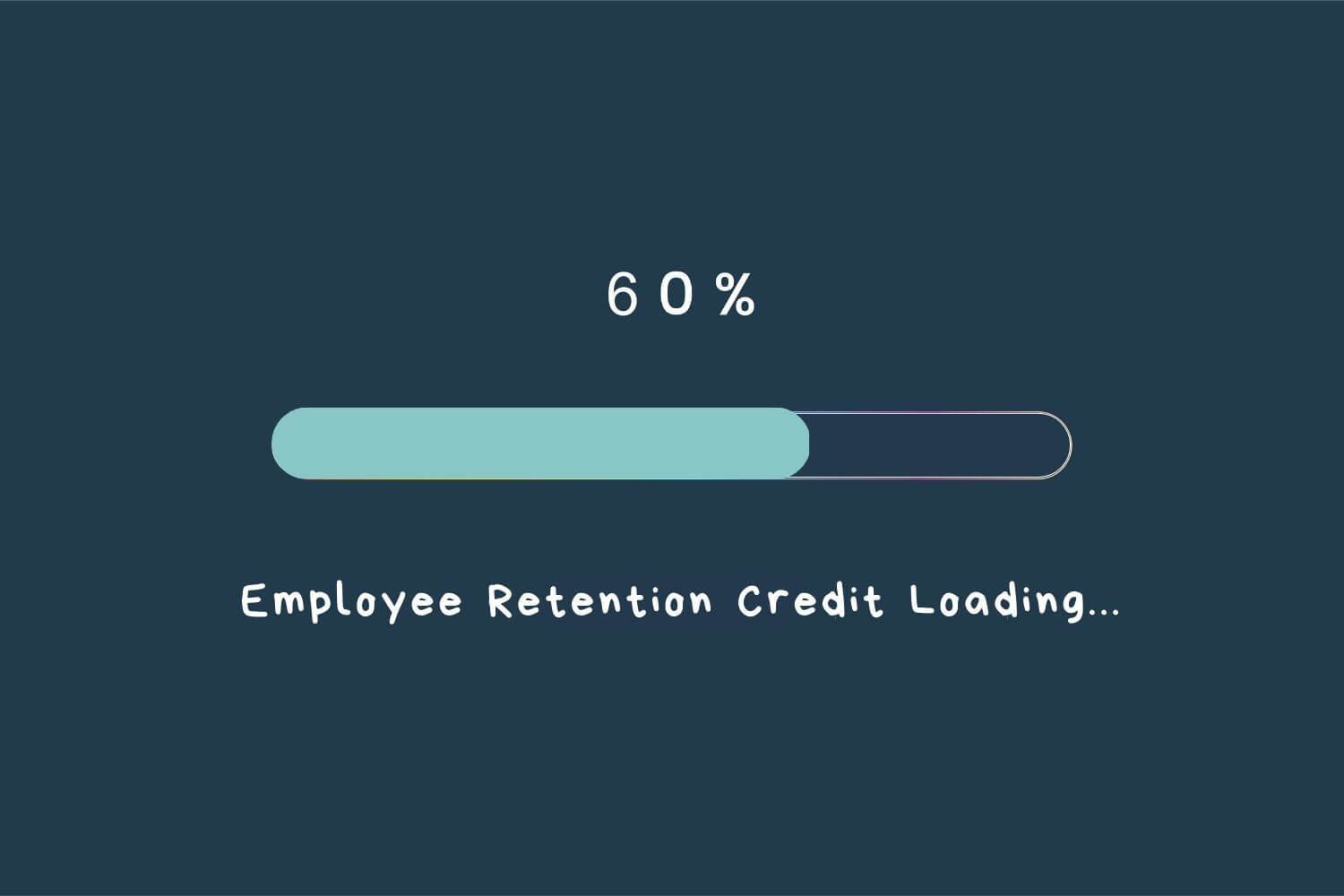

Finance
How Long Does A Credit Screening Take
Published: January 10, 2024
Discover how long a credit screening takes in the finance industry. Get answers to your questions and understand the timeline for this important process.
(Many of the links in this article redirect to a specific reviewed product. Your purchase of these products through affiliate links helps to generate commission for LiveWell, at no extra cost. Learn more)
Table of Contents
Introduction
Credit screening is a crucial step in various financial processes, such as applying for a loan, getting a credit card, or even renting an apartment. It is a process that lenders and financial institutions undertake to assess a person’s creditworthiness and determine their ability to repay debts. But how long does a credit screening take?
Understanding the duration of a credit screening process is vital, as it can help applicants better plan their financial endeavors and manage their expectations. While the length of credit screening can vary depending on various factors, having a general understanding of the process and potential timelines can be beneficial.
In this article, we will explore the factors that affect credit screening duration, the common steps in the process, the timelines for different types of applications, and tips for speeding up the process. Additionally, we will discuss potential delays that might occur during the credit screening process.
By the end of this article, you will have a comprehensive understanding of what to expect during a credit screening and how to make the process as efficient as possible.
Understanding Credit Screening
Credit screening is a vital process that allows lenders and financial institutions to evaluate the creditworthiness of potential borrowers. It involves reviewing an individual’s credit history, income, and other relevant financial information to assess their ability to repay debts. This process helps lenders make informed decisions about extending credit and managing potential risks.
During a credit screening, various factors are taken into consideration, including credit scores, payment history, outstanding debts, credit utilization, and the length of credit history. A credit score is a numerical representation of an individual’s creditworthiness, ranging from 300 to 850. The higher the credit score, the lower the perceived risk for lenders.
Credit screening helps lenders determine the interest rates, credit limits, and terms they offer to borrowers. It also helps financial institutions ensure responsible lending practices and protect themselves from potential defaults.
It is important to note that credit screening is not limited to individuals applying for personal loans or credit cards. Landlords may also conduct credit screenings to assess the financial stability of potential tenants. Additionally, employers in certain industries, such as finance or banking, may request credit screenings as part of their hiring process to evaluate the candidate’s financial responsibility and trustworthiness.
Understanding credit screening and its significance is crucial for individuals who wish to apply for credit or enter into financial agreements. It helps applicants grasp the importance of maintaining a good credit history and financial discipline to increase their chances of approval and favorable terms.
Factors That Affect Credit Screening Duration
The duration of a credit screening process can vary depending on several factors. Understanding these factors can provide insight into why the process may take longer in certain scenarios. Here are some key factors that can affect the duration of a credit screening:
- Amount of Information: The amount of information to be reviewed during a credit screening can impact the duration. For instance, a simple credit card application may require a quick review of credit scores and payment history, while a mortgage application may involve a more comprehensive assessment of income, assets, and debts. The more complex the application, the longer it may take to gather and analyze the necessary information.
- Accuracy of Information: If there are discrepancies or inaccuracies in the information provided during the credit screening process, additional time may be required to resolve these issues. It is crucial to ensure that all provided information is accurate and up-to-date to avoid delays.
- Credit Reporting Agencies: Credit screening involves obtaining credit reports from one or more credit reporting agencies. The time taken by these agencies to provide the required reports can impact the overall duration of the screening process. Delays caused by backlogs or technical issues at credit reporting agencies can extend the screening timeline.
- Additional Verification: In some cases, lenders or financial institutions may need to verify certain information provided by the applicant. This could include employment verification, income validation, or contacting references. The time taken to complete these verifications can add to the overall duration of the screening process.
- Internal Processes: Each lender or financial institution may have their own internal processes and protocols for credit screening. These processes can vary in terms of efficiency and speed. Some institutions may have streamlined systems in place, while others may have more extensive review procedures, leading to longer screening durations.
It is important to note that despite these factors, credit screening processes are designed to be as efficient as possible. Lenders and financial institutions recognize the importance of timely decisions for applicants. However, it is also vital to understand that thorough credit assessments require time to ensure responsible lending practices and protect both the lender and the borrower.
Common Steps in the Credit Screening Process
The credit screening process typically consists of several common steps that lenders and financial institutions follow to assess an individual’s creditworthiness. While the specifics may vary depending on the type of credit application, here are the general steps you can expect:
- Application Submission: The process begins with the submission of the credit application. This can be done online, in person, or through other designated channels. The application includes personal information, financial details, and consent for the lender to access the applicant’s credit report.
- Identification Verification: Once the application is received, lenders verify the applicant’s identity to ensure the information provided is accurate. This can involve requesting identification documents, such as a driver’s license or passport.
- Credit Report Request: Lenders request credit reports from one or more credit reporting agencies to assess the applicant’s credit history. These reports provide valuable information about the applicant’s payment history, outstanding debts, and any derogatory marks.
- Review of Credit History: Lenders carefully review the applicant’s credit history, credit scores, and other relevant financial information. They assess factors such as payment history, credit utilization, length of credit history, and the presence of any negative marks, such as bankruptcies or collections.
- Assessment of Finances: In addition to credit history, lenders evaluate the applicant’s financial situation. This includes analyzing income sources, employment history, current debts, and other financial obligations to assess the borrower’s ability to repay the requested credit.
- Decision Making: Based on the information gathered and analyzed, the lender makes a decision regarding the credit application. This can result in approval, denial, or a request for additional information or documentation.
- Notification to Applicant: Once the decision is made, the lender notifies the applicant of the outcome. If approved, the lender provides details about the terms and conditions of the credit, such as interest rates, credit limits, and repayment schedules.
These steps are designed to ensure a thorough assessment of the applicant’s creditworthiness while adhering to responsible lending practices. Although the duration of each step may vary, lenders strive to complete the process as efficiently as possible to provide timely decisions to applicants.
Credit Screening Timelines for Different Types of Applications
The duration of the credit screening process can vary depending on the type of credit application. Different types of applications may involve different levels of complexity and require varying degrees of scrutiny. Here are some general guidelines for credit screening timelines based on common types of applications:
- Credit Cards: Credit card applications typically have a relatively short credit screening process. In many cases, applicants may receive a decision within a few minutes to a few days. This rapid turnaround is possible because credit card issuers often have streamlined application processes and rely heavily on credit scores and automated systems.
- Personal Loans: Personal loan applications usually require a more extensive credit screening process compared to credit cards. Lenders assess various factors, including credit history, income, debts, and employment. As a result, the screening process can take anywhere from a few days to a couple of weeks before a decision is reached and communicated to the applicant.
- Mortgages: Mortgage applications involve a thorough credit screening process due to the size and long-term nature of the loan. Lenders typically scrutinize credit histories, income verification, employment history, and housing documentation. The credit screening process for mortgages can take several weeks, as lenders need to review all the necessary documents and verify the applicant’s financial stability.
- Auto Loans: Auto loan applications generally have a shorter credit screening process compared to mortgages but may still require a moderate amount of time. Lenders assess credit history, income, and other relevant factors to determine the loan terms. The credit screening process for auto loans usually takes a few days to a few weeks.
- Apartment Rentals: Credit screenings for apartment rentals are typically done by landlords or property management companies. These screenings may involve checking credit scores, rental history, and employment verification. The duration of the credit screening process for apartment rentals can vary, but it is often completed within a few days to a week.
It is important to note that these timelines are general estimates and can vary based on individual circumstances, the efficiency of the lender or property management company, and external factors such as credit reporting agency delays. Applying for credit well in advance can help ensure sufficient time for the credit screening process and avoid potential time constraints.
Tips for Speeding Up the Credit Screening Process
While the credit screening process is designed to be thorough and accurate, there are certain steps you can take to help speed up the process. By being proactive and organized, you can increase the efficiency of the screening and potentially receive a decision more quickly. Here are some tips to consider:
- Ensure Accurate Information: Double-check all the information you provide in your credit application to ensure accuracy. Any discrepancies or missing details can cause delays in the screening process. Make sure to include all relevant information requested and update any outdated information.
- Gather Required Documentation: Before starting the credit screening process, gather all the necessary documents, such as identification proofs, pay stubs, bank statements, and tax returns. Having these documents readily available when requested by the lender can help expedite the process.
- Maintain Good Credit: Maintain a healthy credit history by making timely payments, keeping credit card balances low, and avoiding excessive credit utilization. A good credit score can simplify and accelerate the screening process, as lenders will have fewer concerns about your creditworthiness.
- Respond Promptly: If the lender or credit reporting agencies request additional information or verification, respond promptly and provide the required documents as soon as possible. Delays in submitting requested information can prolong the screening process.
- Be Available: Make yourself available for any potential interviews or phone calls related to the credit screening process. If the lender needs to verify certain details or has questions, being accessible and responsive can help prevent unnecessary delays.
- Choose Lenders with Efficient Processes: Do some research and choose lenders or financial institutions known for their efficient credit screening processes. Look for lenders that offer online applications, use automated systems for quick approvals, and have a reputation for timely decision-making.
- Monitor Your Credit: Regularly monitor your credit reports to ensure accuracy and address any errors or discrepancies promptly. By keeping an eye on your credit, you can identify and resolve issues before they impact the credit screening process.
These tips can help streamline the credit screening process, but it’s important to remember that some aspects may be beyond your control. Delays can still occur due to various external factors, such as credit reporting agency backlogs or internal lender processes. Being patient and maintaining open communication with the lender will contribute to a smoother credit screening experience.
Potential Delays in Credit Screening
While lenders strive for efficient credit screening processes, certain factors may cause delays in the overall timeline. It is important to be aware of these potential delays to manage expectations and understand the possible reasons behind them. Here are some common factors that can contribute to delays in the credit screening process:
- Credit Reporting Agency Backlogs: Credit reporting agencies play a crucial role in supplying credit reports and information to lenders. However, high volumes of requests or technical issues can lead to backlogs, resulting in delays in obtaining the necessary credit reports for screening.
- Verification Processes: Lenders may need to verify the information provided by the applicant to ensure its accuracy and validity. This can involve verifying employment details, contacting references, or obtaining additional documentation. The time taken for verifications by third parties can contribute to delays in the screening process.
- Incomplete or Inaccurate Information: If the credit application contains incomplete or inaccurate information, lenders may need to reach out to the applicant for clarification or request additional documentation. Providing comprehensive and accurate information from the start can help prevent these delays.
- Internal Processes: Each lender or financial institution may have their own internal processes for credit screening. These processes can vary in their efficiency and speed. Some institutions may have multiple layers of review or additional approval steps, which can result in longer screening durations.
- Discrepancies in Credit Reports: In some cases, credit reports may contain errors or discrepancies that need to be resolved. This can involve disputing inaccurate information with the credit reporting agencies and waiting for the necessary corrections to be made, which can contribute to delays in the screening process.
- External Factors: External factors such as regulatory changes, economic conditions, or other unforeseen circumstances can impact the efficiency of the credit screening process. For example, during times of high loan demand or economic instability, lenders may experience increased workloads, which can result in longer processing times.
It is essential to understand that despite these potential delays, lenders and financial institutions strive to complete the credit screening process as efficiently as possible. Communicating with your lender and staying informed about the status of your application can help manage expectations and ensure a smoother process.
Conclusion
Credit screening is an integral part of various financial processes, providing lenders and financial institutions with the necessary information to assess creditworthiness and manage potential risks. While the duration of credit screening can vary depending on several factors, understanding the process and potential timelines can help applicants better plan their financial endeavors and manage their expectations.
Throughout this article, we have explored the factors that can influence the duration of credit screening, such as the amount and accuracy of information, credit reporting agencies, additional verification processes, and internal lender procedures. We have also discussed the common steps involved in credit screening, including application submission, identification verification, credit report request, review of credit history and finances, decision making, and notification to applicants.
Additionally, we have provided tips for speeding up the credit screening process, such as ensuring accurate information, gathering required documentation in advance, maintaining good credit, responding promptly to requests, and choosing lenders with efficient processes.
It is important to be aware that potential delays can occur during the credit screening process, such as credit reporting agency backlogs, verification processes, incomplete or inaccurate information, internal lender processes, discrepancies in credit reports, and external factors.
As applicants, it is crucial to be proactive, communicate effectively with the lenders, and maintain patience throughout the credit screening process. By understanding the factors that affect the duration, following best practices, and staying informed, individuals can navigate the credit screening process more efficiently and increase their chances of favorable outcomes.
In conclusion, credit screening is a critical component of the financial landscape. By understanding the process, factors that influence duration, and employing helpful strategies, applicants can navigate the credit screening process smoothly and achieve their financial goals.














